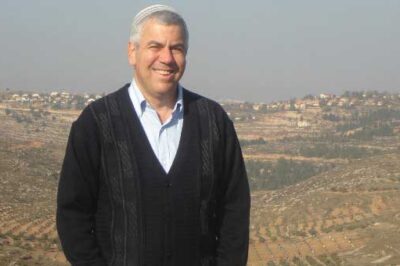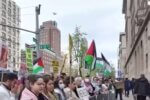As a longtime resident in the re-established Israeli town of Shiloh, in the hills of Samaria (the northern part of the West Bank), I am often asked by visitors about the verse in Genesis that speaks about Shiloh in rather mysterious terms:
“The scepter shall not depart from Judah, nor a scholar from among his descendants, until Shiloh comes, and his will be an assemblage of nations” (Gen. 49:10).
We know that Shiloh was the first capital city of ancient Israel, the place where the tabernacle of Israel stood for 369 years, where Hannah came to pray for a son and where the son who was born from those prayers, Samuel the prophet, grew up, serving the Almighty in the tabernacle. The history is clear, but why “until Shiloh comes”? Places don’t come; people do.
The biblical commentators teach us that Shiloh means “Messiah.” This raises new questions. Why Shiloh? Why is Shiloh synonymous with Messiah?
When Joshua established the tabernacle in Shiloh, he said the following words to the Israelites: “How long will you wait to come and take possession of the land that the Lord God of your fathers has given you?” (Josh. 18:3)
The imperative to conquer the land of Israel wasn’t just obligatory in Joshua’s times, but also in our times. Shiloh and Jerusalem are the heart of that process. It says in the Talmud: “To the resting place and to the inheritance; to the resting place, this is Shiloh; the inheritance this is Jerusalem” (Zevachim 119A).
There is a sequence of events in the redemptive process. In biblical times, Shiloh, with its tabernacle, needed to be built up first before the holy temple could be built in Jerusalem by King Solomon. The Samarian heartland, where Shiloh is located, needed to be conquered in the days of Joshua, before kings David and Solomon could reign in Jerusalem.
We are repeating biblical history today. The so-called West Bank, properly called Samaria and Judea, is central in the struggle for the land of Israel. The rebuilding of this biblical heartland for Israel is a necessary first step in the rebuilding of the holy temple in Jerusalem, as a vital part of the process of redemption for Israel and for the world.
Obviously, the anticipated coming of the Messiah is central in the process of Israel’s complete return and the establishment of God’s kingdom in Jerusalem. That is why Shiloh means Messiah—because the road to Jerusalem is dependant on the rebuilding of Shiloh and the biblical heartland that Shiloh represents. That is the redemptive process. The pace depends on all of us acting according to God’s plan.
“I am the Lord. In its time will I hurry it.” (Is. 60:22)
May we all be worthy of hastening that process—for Israel and for the world.
David Rubin, former mayor of Shiloh, Israel, is founder and president of the Shiloh Israel Children’s Fund, www.ShilohIsraelChildren.org, established after he and his 3-year-old son were wounded in a terrorist shooting attack. He is the author of three books, including his new book, Peace for Peace: Israel in the New Middle East, available on Amazon.com or at www.DavidRubinIsrael.com.







Leave a Comment
You must be logged in to post a comment.